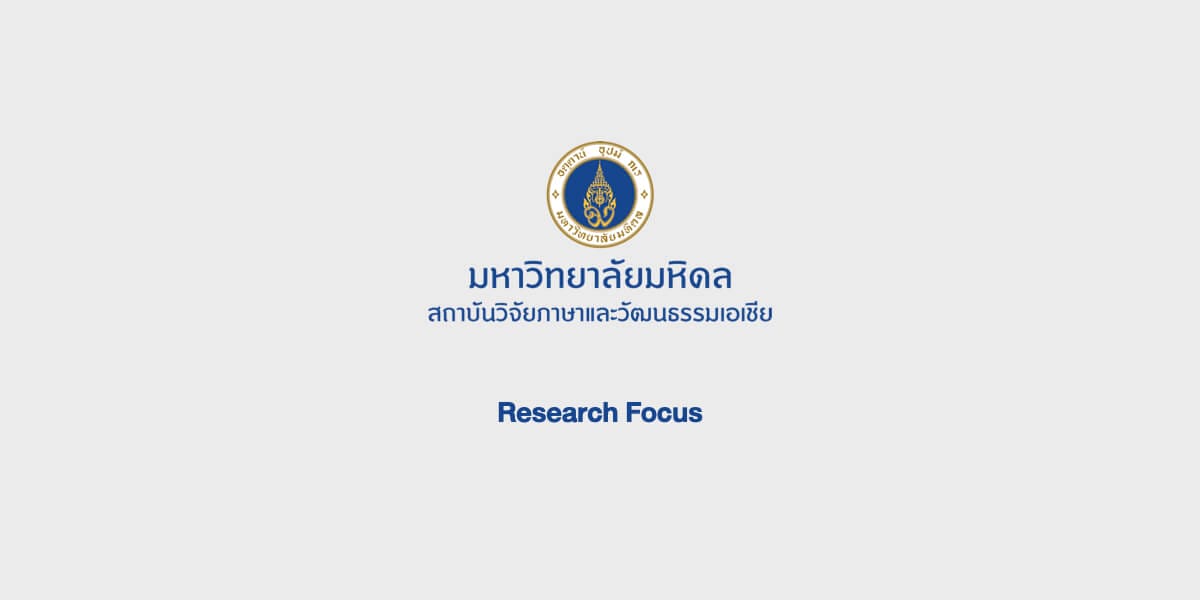
การศึกษาสาเหตุของความเครียดและกลยุทธ์การรับมือของครูระดับมัธยมศึกษาด้วยวิธีวิทยาคิวและการสำรวจโดยใช้คิวป็นฐาน
หัวหน้าโครงการ:
นักวิจัย:
–
ระยะเวลาดำเนินการ:
ที่มาและความสำคัญ
อาชีพครูเป็นงานที่มีความต้องการทางอารมณ์สูง ครูต้องจัดการทั้งอารมณ์ของตนเองและผู้อื่น ความท้าทายจากการสอน การสร้างความสัมพันธ์กับนักเรียน ผู้ปกครอง เพื่อนร่วมงาน และผู้บริหาร ส่งผลให้เกิดความเครียด ซึ่งอาจนำไปสู่ปัญหาสุขภาพกายและจิต รวมถึงการลาออกจากอาชีพ ความเครียดในครูมีปัจจัยหลากหลาย ทั้งจากสภาพแวดล้อมการทำงาน ลักษณะส่วนบุคคล และกลไกการเผชิญปัญหา
แนวคิดจิตวิทยาเชิงบวก (Positive Psychology) เสนอการส่งเสริมคุณลักษณะและความยืดหยุ่นเชิงบวกของครู เพื่อลดความเครียดและเสริมประสิทธิภาพการสอน โดยใช้กรอบ PERMA (Positive Emotion, Engagement, Relationships, Meaning, Accomplishment) เพื่อสร้างความผาสุกอย่างยั่งยืน งานวิจัยก่อนหน้านี้ชี้ว่าแม้โรงเรียนจะมุ่งเน้นความผาสุกของนักเรียน แต่ประสบการณ์และความต้องการของครูกลับถูกละเลย
การศึกษาครั้งนี้จึงมุ่งสำรวจความผาสุกของครูไทยด้วยวิธี Q methodology ควบคู่การสำรวจเชิงปริมาณ เพื่อให้ได้ข้อมูลเชิงลึกและสามารถสรุปผลได้อย่างกว้างขวาง ผลการศึกษาจะนำไปใช้พัฒนาโปรแกรมการแทรกแซงเชิงจิตวิทยาเชิงบวก (Positive Psychology Interventions: PPIs) ที่ตอบสนองต่อบริบทของครูไทย ช่วยลดความเครียด ส่งเสริมความสุขที่ยั่งยืน และเป็นข้อมูลสำคัญสำหรับผู้กำหนดนโยบายด้านการศึกษา
วัตถุประสงค์
The objectives of this study are as follows:
- Identify and describe potential stressors among Thai secondary-level teachers.
- Identify potential coping strategies used by Thai secondary-level teachers in response to different stressors.
ผลผลิต
Executive Summary
Teacher stress and coping are complex and subjective phenomena that vary across individuals and educational contexts. This study investigated how Thai secondary school teachers experience and cope with stress by employing a mixed-methods approach that combined Q methodology, semi-structured interviews, and Q-based surveys. A total of 72 teachers from six regions across Thailand participated in Q sorting, ranking 36 and 25 statements on forced-distribution grids, followed by interviews that provided deeper insights into their perspectives. Inverted factor analysis revealed five distinct stressor profiles: workload, student performance and participation, professional demands, extra duties with limited support, and expectation. These profiles were subsequently validated through a follow-up survey with 203 teachers, which closely mirrored the Q-sorting results and highlighted emerging issues including administrative overload, unfulfilled teaching goals, challenges arising from educational reforms and technological change, and the subjective nature of stress shaped by teachers’ professional identity and demographic backgrounds.
The study also identified three coping profiles that illustrate the diversity of strategies teachers adopt in managing stress. Recovery-focused copers tended to rely on rest, withdrawal, and recreational activities, which offered short-term relief but were associated with higher stress levels. Awareness-based copers emphasized mindfulness, reflection, and emotional awareness, occasionally supplemented with planning and prioritization, though this approach was perceived as less effective overall. Goal-driven copers, the smallest group, employed problem-focused strategies such as goal-setting, structured planning, and collaboration, and they reported the lowest stress levels and highest coping effectiveness. These findings reinforce the view that stress is not simply a reaction to external pressures but rather a product of how teachers appraise and interpret demands in relation to their coping resources.
The results have important implications for policy and practice. Supporting teacher well-being requires more than generic stress management programs; it calls for differentiated interventions that reflect teachers’ varied coping approaches and professional contexts. Reducing administrative overload, clarifying role boundaries, and ensuring fair task allocation are essential to address systemic stressors. At the same time, professional development should focus on equipping teachers with strategies that balance emotion-focused and problem-focused coping, while also preparing them to adapt constructively to educational reforms and policy changes. Ultimately, this study underscores the importance of recognizing the pluralism of teacher stress and coping, and it offers a framework for designing policies and professional development initiatives that strengthen teacher resilience, safeguard well-being, and enhance educational quality.

